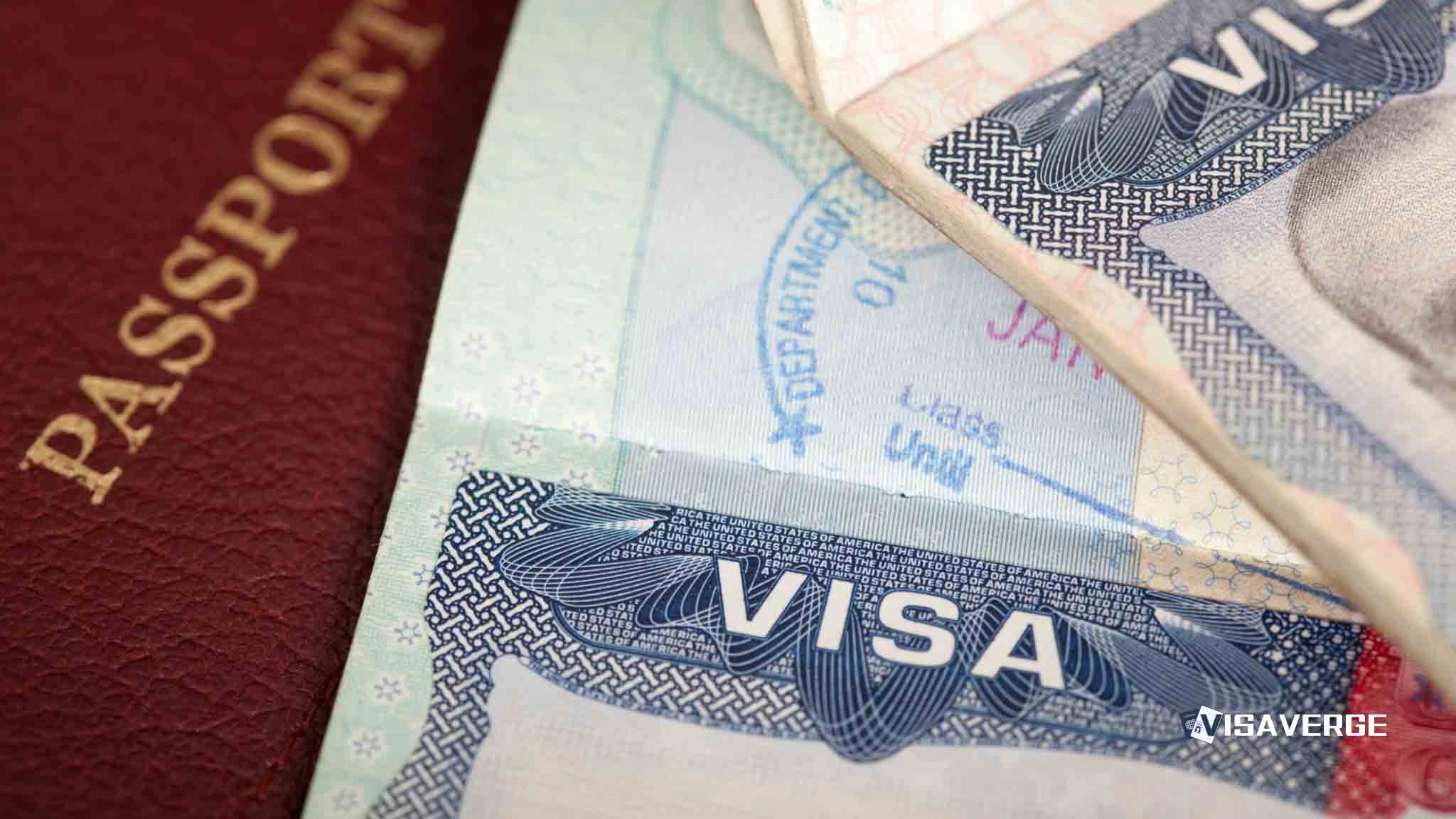(EUROPE (EU PARLIAMENT)) The European Parliament has approved a stricter and more flexible “Visa emergency brake” that would let the European Union suspend visa-free travel more quickly and in more situations, including non‑migration cases, starting from October 7, 2025. Lawmakers backed the reform to add expanded grounds for suspension, allow targeted action against specific officials, and set clearer thresholds, while keeping the decision ultimately subject to approval by EU governments in the Council.
The rules will take effect 20 days after publication in the EU’s Official Journal once the Council formally adopts them.

Broader triggers for suspension
At the center of the reform is a broader list of triggers for the Visa emergency brake. Under the new text, visa-free travel can be suspended for reasons beyond migration concerns, including when a third country:
- is involved in hybrid threats;
- runs investor citizenship schemes that raise security concerns;
- fails to align with EU visa policy;
- violates the United Nations Charter;
- commits severe breaches of international human rights or humanitarian law;
- or refuses to comply with international court rulings.
Previously, suspensions were focused mainly on sharp rises in irregular entries or low asylum recognition rates. Parliament’s decision brings the suspension grounds in line with the standards used for granting visa waivers in the first place.
Targeted suspensions for officials
The reform introduces a narrower, more precise tool: targeted suspension for government and state officials.
- Instead of suspending visa-free access for all nationals of a country, the EU can suspend access for specific officials — including holders of diplomatic and service passports — who are held responsible for breaches.
- Supporters say this design is meant to deter abuses while limiting the impact on ordinary travelers who rely on visa-free travel for short visits.
This approach aims to punish responsible actors while minimizing disruption to the general population.
Policy changes overview and numeric thresholds
The revised framework sets numeric thresholds to guide when the Visa emergency brake might be used:
- 30% rise in irregular arrivals can trigger action.
- 20% asylum recognition rate is the low approval level that can count toward a suspension.
The European Commission may deviate from these thresholds in well-justified cases, allowing action when patterns fall short of the numbers but still threaten public order, security, or EU values.
According to analysis by VisaVerge.com, the addition of flexible discretion is intended to ensure the tool is swift without being blunt.
Scope and countries covered
- The mechanism covers nationals of 61 countries that currently enjoy visa-free travel to the Schengen Area for short stays (up to 90 days in any 180-day period).
- Examples include Israel, Georgia, Ukraine, Serbia, and Venezuela.
The goal is to keep visa-free travel intact for genuine short-term visits while giving the EU a stronger deterrent against misuse.
The reform shifts the framework from a migration-only focus to a broader rule-of-law lens, explicitly referencing the UN Charter, international court decisions, and serious human rights or humanitarian law breaches.
Impact on travelers and governments
For most travelers from visa-exempt countries, day-to-day plans will not change if their country maintains cooperation and meets basic standards. Visa-free travel for tourism, business, family visits, and transit remains in place across the same 61 countries.
However, the practical effects are twofold:
- Targeted restrictions on officials
- Government and state officials from countries that breach the new standards may face immediate loss of visa-free travel even if ordinary citizens do not.
- This could affect ministerial delegations, security services, and other public officials using diplomatic or service passports.
- Airlines, border guards, and consulates would need to apply different rules for officials and ordinary passport holders from the same country until concerns are resolved.
- Faster broader suspensions if warning signs build
- If there is a steady rise in irregular entries or evidence of hybrid threats (for example, state‑sponsored instrumentalisation of migrants), the Commission can move faster to propose a broader suspension.
- Potential consequences include:
- temporary checks,
- increased carrier liability alerts,
- closer screening at external borders.
- Sectors affected may include tour operators, universities hosting short‑term scholars, and businesses planning time-sensitive meetings.
For diaspora communities, the targeted option may help shield families from blanket measures while still holding decision‑makers to account. For example, if a country adopts an investor citizenship scheme that raises security concerns, the EU could suspend visa-free access for officials linked to the policy while engaging the wider public through outreach and consular channels.
Timeline and next steps
- Parliament approved the reform on October 7, 2025.
- The file now moves to the Council for formal adoption.
- Once published in the EU’s Official Journal, the new rules will enter into force 20 days later.
After adoption, the Commission would be able to apply the updated triggers and the targeted official suspensions within the existing structure of the Visa emergency brake.
Officials stress the mechanism remains a temporary tool that can lead to longer measures if problems persist. The Commission will continue to monitor trends, consult member states, and propose proportionate steps.
Practical advice for travelers, airlines, and employers
- People planning travel should watch for Commission communications and Council decisions, especially if they hold diplomatic or service passports.
- Airlines and travel agencies may adjust check-in rules quickly if a decision is made.
- Employers relying on frequent short‑term travel (trade shows, client meetings) may want to prepare fallback plans, such as:
- longer lead times;
- alternative meeting locations;
- contingency visa arrangements.
Purpose and broader context
The reform’s deterrent effect is central. By tying visa-free travel to behavior that respects EU policy, court decisions, and international law, the EU aims to prevent crises rather than simply react to them.
- The ability to act against officials first, and to act fast when there is a 30% rise in irregular arrivals or a 20% approval floor for asylum claims, is designed to keep pressure on governments while avoiding broad penalties for their citizens.
- Lawmakers say this balance protects Schengen’s openness while guarding against abuse.
Parliament framed the move as a response to a changing security and legal landscape, noting cases where visa-free travel was used alongside disinformation or pressure tactics. With the updated Visa emergency brake, the EU now has a clearer path to respond when lines are crossed, while still encouraging cooperation that keeps visa-free travel working for millions of legitimate visitors each year.
For official information and updates on the mechanism, consult the European Commission’s resource here: European Commission – Visa suspension mechanism.
This Article in a Nutshell
On October 7, 2025, the European Parliament approved a revised Visa emergency brake that broadens grounds for suspending visa-free travel and introduces targeted suspensions for specific officials. The reform expands triggers beyond migration to include hybrid threats, investor citizenship schemes, non-compliance with the UN Charter, severe human rights or humanitarian law breaches, and refusal to follow international court rulings. Numeric guidance — a 30% increase in irregular arrivals and a 20% asylum recognition rate — helps determine action, while the Commission retains discretion in exceptional cases. The mechanism covers 61 visa‑exempt nationalities and enters into force 20 days after publication once the Council formally adopts it. The changes aim to deter abuse, protect Schengen’s openness, and limit disruption to ordinary travelers by focusing on responsible actors rather than entire populations.













